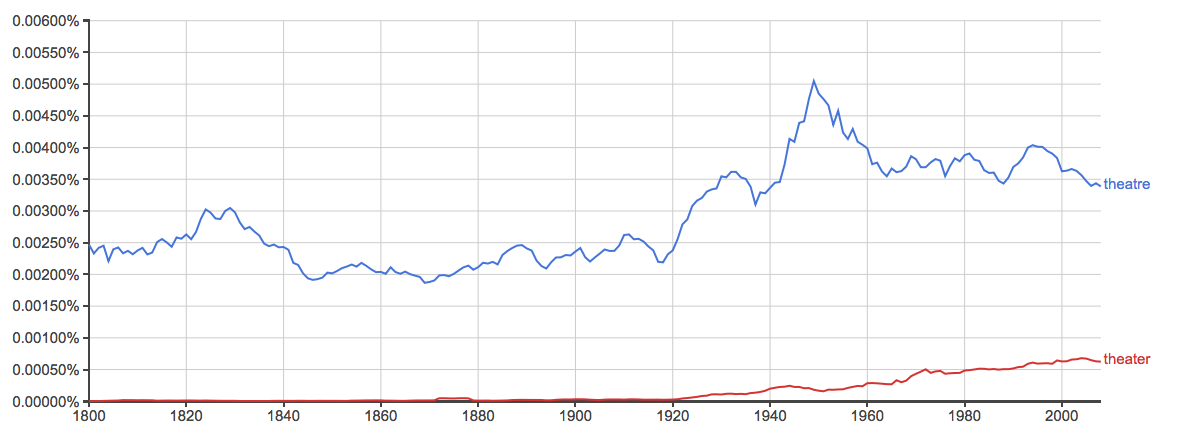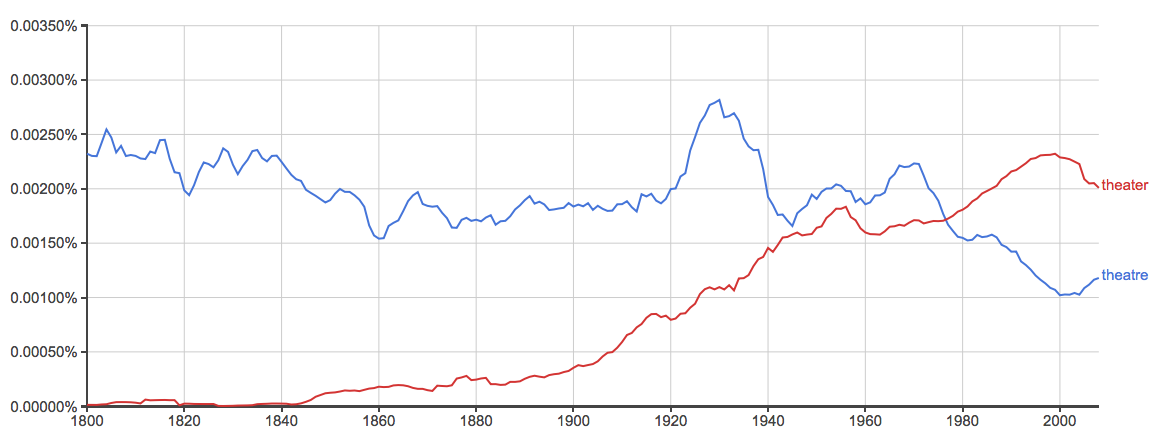The words theatre and theater can be confusing to writers because it’s not immediately clear which word is the better choice—or if there’s a “better” choice at all. Are these just variants of the same word? Do they have different meanings or different functions within a sentence?
In today’s post, I want to address each of these questions so that you will never again have to second-guess yourself while writing theatre or theater. So, what is the difference between theatre vs. theater?
What is the Difference Between Theatre and Theater?
Theatre and theater are both nouns that mean a building, room, or outdoor structure for the presentation of plays, films, or other dramatic performances.
- The auditorium of the theatre, which will open in Spring 2017, will be designed by Steve Tompkins and Roger Watts of Haworth Tompkins. –The Guardian
- While London is fortunate in its heritage of Victorian and Edwardian theaters, relatively few new theaters of scale have been built in London in the last hundred years. –New York Times
 They can also refer to the activity or profession of acting in, producing, directing, or writing plays.
They can also refer to the activity or profession of acting in, producing, directing, or writing plays.
- What caused you to go into theater?
- I have been in love with theatre even since I was a child.
You’re probably still wondering, “Okay, so when do I know which one to use and when?”
For the most part, there is no demonstrable difference in sense or function between them. There are, however, important dialectal differences to consider, which I will outline below.
When to Use Theatre
Theatre is by far the preferred spelling in British English in all senses of the word, plays, buildings, the art form, etc. The graph below illustrates just how deep the preference is for theatre in British English.

Clearly, if you are a British writer, or an American writer writing to a British audience, the correct spelling for you is theatre.
Part of a writer’s job is to know who his or her audience is. If your audience unanimously uses one spelling over another, you, as a writer, should take note of this to more effectively communicate to them.
This preference is not only borne out in popular usage in Britain, but popular British style guides like Fowler’s also list theatre as the preferred spelling in British English.
When to Use Theater
Theater is the preferred spelling in American English for all senses of the word, as the below graph illustrates.

Most American usage guides agree with this. Garner’s and The AP Stylebook both list theater as the preferred spelling. It is interesting to note, however, that theater has become the preference in American English only in the last 50 years or so, which makes some people reluctant to accept its spelling.
Others have attempted to distinguish between theatre and theater, with theatre being an art form and theater being a building where theatre is performed. None of these, however, has caught on and none is borne out in actual usage.
Unless theatre is used in the proper name of a building, production company, etc., theater is the correct spelling in American English. Some examples of theatre in proper names, the American Ballet Theatre, the Muncie Civic Theatre, etc.
Going to the Movie Theater or Theatre?
These same preferences equally apply to the cinema as they do live theater. You should, therefore, write movie theater in America and movie theatre in Great Britain.
It is interesting to note, however, that movie theater is primarily a North American phrase. In Great Britain, they typically say, “We’re going to the pictures.”
Theatre and Theater Pronunciation
Both words are pronounced the same, which is “thee-ə-ter.“ The word is not pronounced “thee-ay-ter” or “thee-ay-ter.”
Summary
What is correct spelling theater or theatre? In most contexts, there is no real difference between theater vs. theatre. What English writers and languages learners need to be aware of, however, are the dialectical differences between these spellings.
Different English speaking regions spell the word differently.
British English writers spell the word theatre.
American English writers spell the word theater.
Contents
